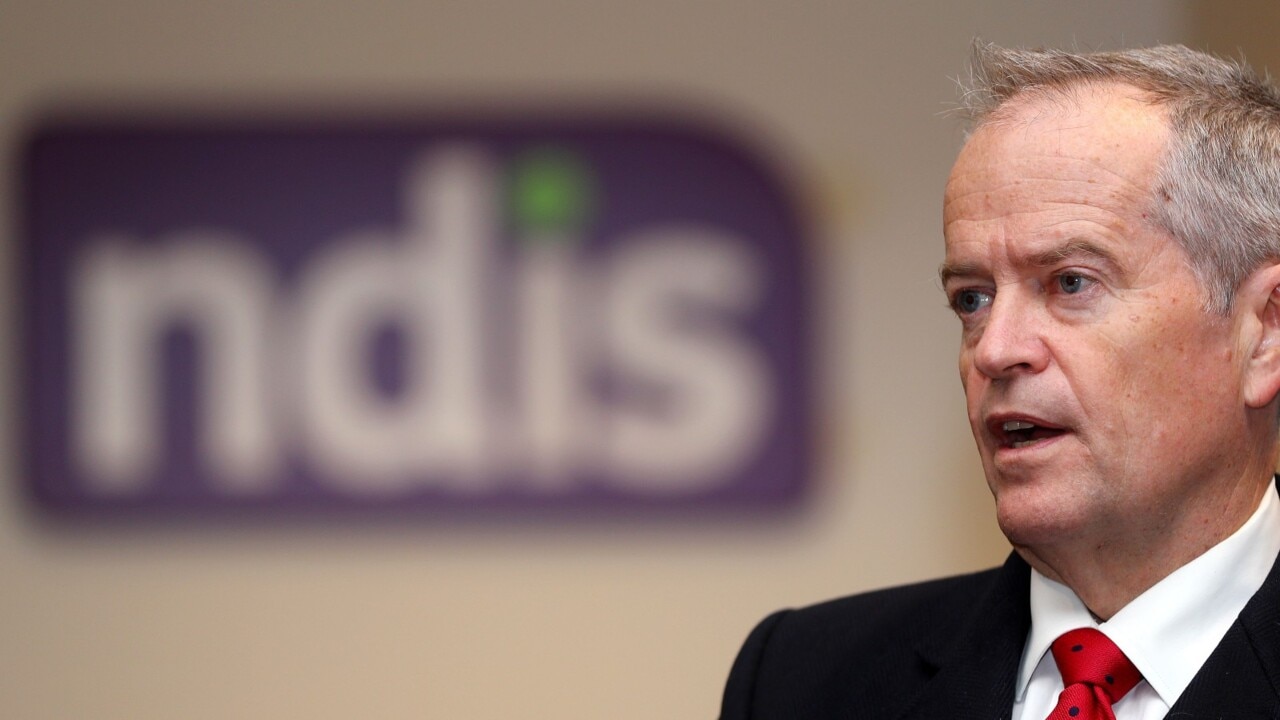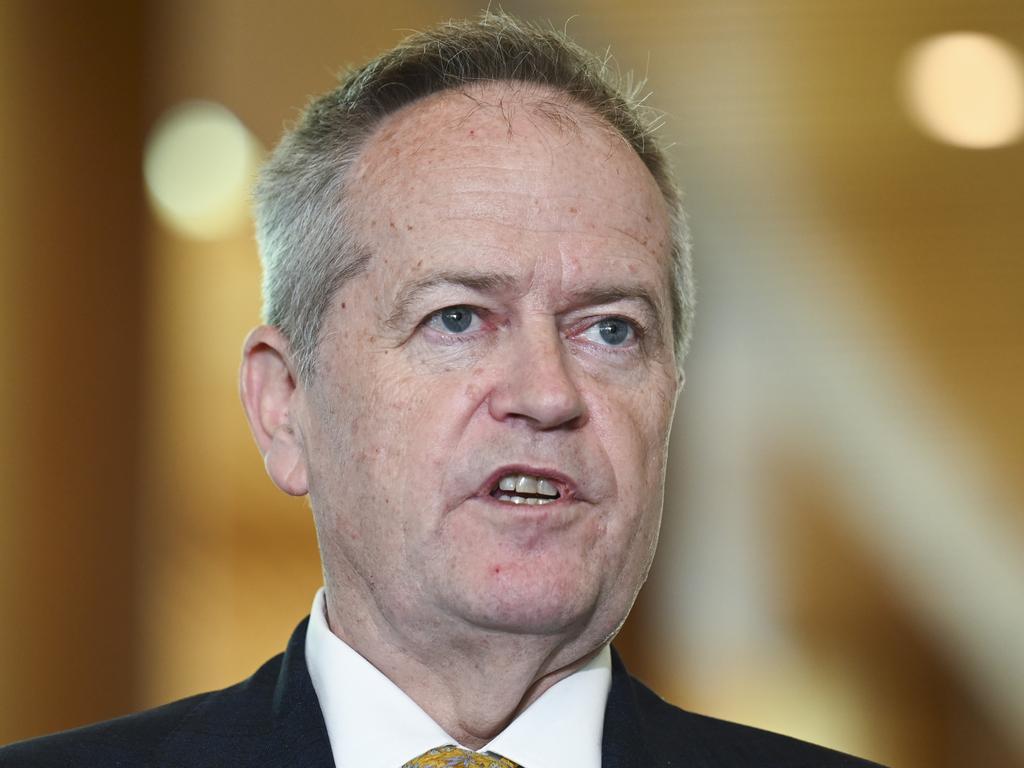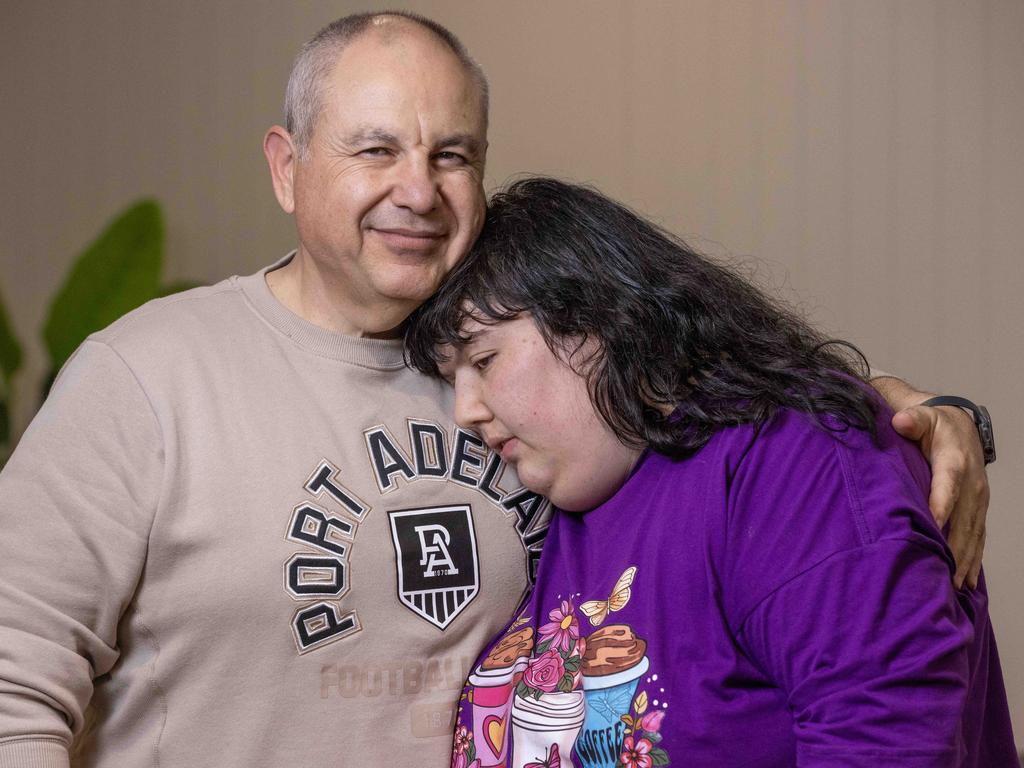The NDIS has become a cash cow for some providers at the expense of the genuinely needy | David Penberthy
How can it be that 12 per cent of boys in Australia have anything resembling a genuine disability, writes David Penberthy.

Opinion
Don't miss out on the headlines from Opinion. Followed categories will be added to My News.
Many years ago while grabbing lunch outside The Advertiser on Waymouth St I witnessed a frightening incident where a young boy almost got hit by a car outside Topham Mall.
A couple were backing their bags into their car at the Peppers Hotel.
They had two children, the young boy and a baby.
As the mum was putting the baby into the booster seat and dad was dealing with the luggage the other child meandered off into the intersection. He looked like he was sleepwalking.
I called out to him to stop, which he did, and went over to the mum explaining that her son had wandered onto the road.
This poor mother was totally frazzled and appeared to take my comments as being judgmental, simply snapping back: “He has autism.”
I hadn’t meant it in a judgmental way obviously, but merely was shocked by the whole episode, and was thinking afterwards how stressed and exhausted these parents must be dealing with the special needs of their son.
That incident formed the introduction to a column arguing in support of the creation of the National Disability Insurance Scheme.
Disability is something you can plan for in an actuarial sense; that is, we can reasonably predict the numbers of people who are going to be born with a disability or develop a disability.
Or at least we thought we did.
One of the key problems with the NDIS seems to be that it has quickly become all things to all people, or certainly more people than it was intended to serve, meaning that families such as the one on Waymouth St whose child has acute behavioural needs must slug it out for attention with others whose so-called disabilities are marginal at best and imagined at worst.

The most annoyed I have ever been both as a parent and taxpayer involved a child-related visit to an occupational therapist to deal with a handwriting issue.
Having shocking handwriting is almost a tradition in my family and one that I have passed on to some of my kids. In our own middle class way we thought it might be worth getting looked at.
The process gave me little insight into the treatment of poor handwriting, but a crystal clear look at how the NDIS has ballooned out of control and turned into a cash cow for some providers.
After one visit and with no broader examination of any other behavioural issues I was told that dysgraphia could sometimes be part of a broader suite of developmental delay problems and that it would be easily possible to obtain a diagnosis to that effect, after which we could block-book a whole pile of OT sessions at a reduced rate.
That reduction of course would come thanks to the taxpayer as the world’s most bearable medical “condition” – having crappy handwriting like your hopeless dad – was elevated to the status of a disability.
Needless to say this was the last session with the OT.
This small episode helps tell the bigger story of how the NDIS has exploded in a little over a decade.
The Australian’s Steven Lunn wrote this week that 12 per cent of all boys aged five to seven across Australia and 5 per cent of girls the same age are now on the NDIS.
The figures for boys are genuinely astounding. How can more than 1 in 10 boys in this country have anything resembling a genuine disability?
I am close to a couple of people whose children have profound needs and know the challenges they have faced.
They are a hell of a lot more onerous than having a bit of trouble holding a pen.
Living in constant fear that your child might wander into oncoming traffic is more of a concern than wondering if you can get around the handwriting issue by simply getting an iPad.
The end result of all this manifests itself in cases such as that of the Kosteriadis family in Grange who we have spoken to on radio a couple of times.
Father Alex Kosteriadis has been forced to shut his business and become a full-time carer to his profoundly disabled daughter Georgia.
The reason is that Georgia is no longer at her special school and as a result Alex and his wife need to pick up the extra 30-odd hours a week of care for their girl.
In what sounds like a pretty ramshackle operation the NDIS did a quick fire review of the case and said they would not be providing any further assistance.
One of the reasons given for the native review of Georgia’s case was “value for money”.

To defend the NDIS caseworker in this case, part of the problem is that the organisation has simply become overwrought by its own scale.
The key reason for this is that so many other people who were never envisaged as being its clients have ended up crashing the party.
Part of that reflects what strikes me as almost perverse sense of trendiness around the condition of autism itself.
You hear and read references to people (or their children) being “on the spectrum” as if it has a kind of cachet to it.
You have to wonder how this sits with those parents outside Topham Mall that day, or with the Kosteriadis family, or with the parents of kids with Down syndrome or Cerebral Palsy who know what a full-time proposition a real disability actually entails.
Too many people are going along for the ride.
It has become a business model, one which some parents will understandably access in such tight financial times.
But we should ask ourselves the question: should we really be here at all, accessing a noble scheme invented for those in genuine need, which has now turned into a free-for-all which will send the country broke.
More Coverage
Originally published as The NDIS has become a cash cow for some providers at the expense of the genuinely needy | David Penberthy










